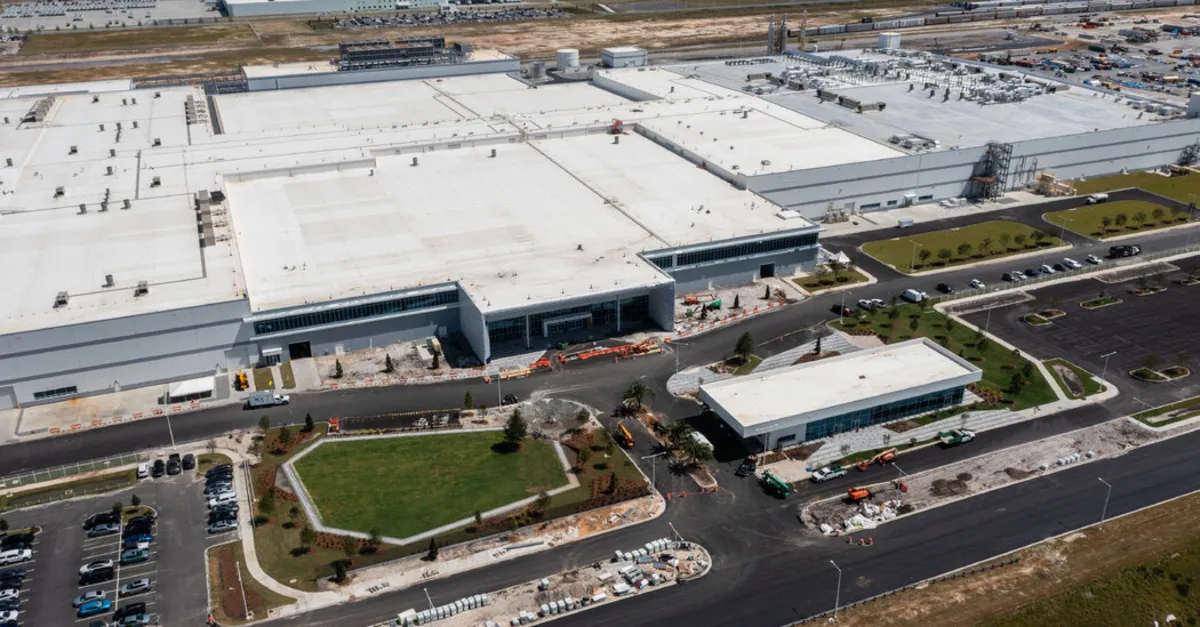
Last week, nearly 500 individuals were detained during a significant raid at a Georgia battery plant owned by a joint venture of two South Korean manufacturers. This operation marks the largest immigration enforcement action at a single location in the history of the Department of Homeland Security (DHS). However, the raid has raised serious questions about the legality of the actions taken by immigration officials, particularly in the case of workers who were legally employed.
Documents obtained by The New York Times revealed that at least one worker detained during the raid was employed legally. Despite this, officials forced him to leave the country. The internal records from Immigration and Customs Enforcement (ICE) showed that among the 11 detained workers, six had entered the United States with B1 or B1/B2 visas, which are typically issued for business trips lasting up to six months. Additionally, four individuals entered through the visa waiver program, allowing for travel up to 90 days. The status of one worker remains unclear.
While ICE records stated that ten out of the eleven workers were unlawfully employed at the time of the raid, they did not elaborate on the specifics of these alleged violations. In the exception, ICE agents noted that although the worker “has not violated his visa,” the local ICE field office director mandated that he be considered as someone voluntarily departing the country.
Approximately two-thirds of those detained on September 4 were South Korean nationals. Most were subsequently flown back to South Korea, landing in Seoul after a 24-hour wait, during which President Trump reportedly advised South Korean officials to consider allowing these workers to remain and train American staff.
Immigration lawyer Charles Kuck, representing some of the detained individuals, criticized the actions of ICE. “What ICE is doing here is illegal, and people should be held to account,” he stated, raising concerns that the enforcement strategy has shifted from targeting individuals violating immigration laws to a broader approach affecting all workers, regardless of their legal status.
This incident at the battery plant is indicative of the broader implications of the Trump administration's immigration policies, which often conflict with other objectives such as increasing domestic production. The administration has pressured trading partners to manufacture goods in the U.S. or face hefty tariffs, fostering an environment where advanced manufacturing jobs are increasingly dependent on foreign labor.
The plant, co-owned by Hyundai and LG Energy Solution, is nearing completion, with contractors working on sophisticated equipment necessary for producing electric vehicle batteries. However, representatives from the joint venture have not commented on the raid or its repercussions.
The B1 and B1/B2 visas held by some of the Georgia plant's workers are intended for business-related travel and should be used for activities such as consulting or attending conferences. In the first five months of the year, a total of 4,906 B1/B2 visas were issued to South Koreans, a small fraction of the total 2.86 million visas granted globally during the same period. As other visa programs become increasingly competitive, many companies have turned to B1 visas to quickly bring in foreign workers.
Robert Marton, an immigration lawyer, noted that as H-1B visa applications become more restrictive, businesses are looking for alternative solutions to secure necessary talent quickly. “The H-1B program has been restrictive as it’s been for years,” he commented, emphasizing the need for firms to navigate complex immigration laws effectively.
Despite the goals of immigration enforcement, many observers are concerned about the lack of clarity regarding visa regulations. Jongwon Lee, a lawyer working with South Korean companies in Georgia, pointed out that the guidance on what constitutes permissible activities under a B1 visa remains ambiguous. “Nobody knows if installing software or setting up machines counts as consulting,” he remarked, highlighting the confusion surrounding immigration compliance.
Furthermore, documents suggest that the ICE agents conducting the raid were not specifically targeting temporary South Korean workers. The original warrant only listed four Hispanic individuals, leading to claims that the detention of South Korean workers was unintentional.
The raid reflects a significant shift in immigration enforcement strategies under the Trump administration, which has sought to meet ambitious arrest quotas. As part of a broader deportation initiative, the White House has orchestrated operations that involve multiple agencies, often leading to large-scale detentions.
While most of the detained South Korean workers planned to return to their homeland, some may consider reapplying for work in the U.S. In a notable twist, one worker opted to stay with relatives who hold green cards. Typically, accepting a “voluntary departure” signifies an acknowledgment of immigration law violations; however, in this case, the removal documents did not indicate any admission of wrongdoing.
The Georgia battery plant raid has brought to light the complex interplay between immigration enforcement and the needs of the manufacturing sector. With an increasing reliance on foreign labor for both manual and technical roles in advanced factories, the urgency for clear immigration policies is more pronounced than ever. As advocacy groups and legal representatives work to address the fallout from this operation, the implications for immigrant workers and the future of U.S. manufacturing remain uncertain.